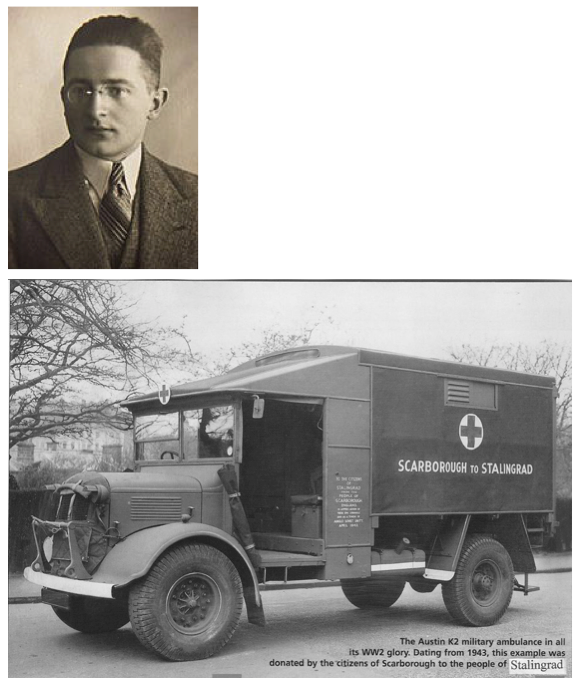During the war many nationalities came to Scarborough to be billeted and train as servicemen: Canadians, Americans, Czechs, French, South Africans and Poles. It is not always appreciated how much support was given to Britain by the Poles.
People in Scarborough also gave generously to provide support to the Soviet Union/Russia.
Britain’s Polish Allies in World War II
The Polish community in the United Kingdom was boosted in the mid-20th century during the Second World War, when Polish people made a substantial contribution to the Allied war effort. Most of the Polish people who came to the United Kingdom at that time comprised military units reconstituted outside Poland after the German and Soviet invasions of Poland.
The first Polish military branch to transfer substantial personnel to the United Kingdom was the Polish Navy. Shortly before the outbreak of hostilities, the Polish government ordered three destroyers, for their protection and in anticipation of joint operations with the Royal Navy, to sail for Great Britain. Two submarines also sailed there, the Orzeł (Eagle) arriving unannounced in Scotland after a daring breakout from the Baltic Sea following its illegal internment in Estonia.
The Polish formed the fourth-largest Allied armed force after the Soviets, the Americans, and the combined troops of the British Empire. They were the largest group of non-British personnel in the RAF during the Battle of Britain, and the 303 Polish Squadron was the most successful RAF unit in the Battle of Britain. Special Operations Executive had a large section of covert, elite Polish troops that cooperated closely with the Polish resistance. By July 1945 there were 228,000 troops of the Polish Armed Forces in the West serving under the British.
The great majority of Polish military veterans stranded in western Europe decided against returning to parts of their former homeland that had, in November 1939, become part of Byelorussia and Ukraine. These Polish people and their families — many of whom had been ethnically cleansed by deportation to the Soviet Union — were to form the nucleus of the postwar Polish community in Britain.
The Polish Government in Exile, though denied majority international recognition after 1945, remained at its post in London until formally dissolved in 1991, after a democratically elected president had taken office in Warsaw.
Polish mathematician Marian Rejewski c. 1932, when he first "broke" the German Enigma cipher. This work helped the cryptographers at Bletchley Park to break German codes during the war.
